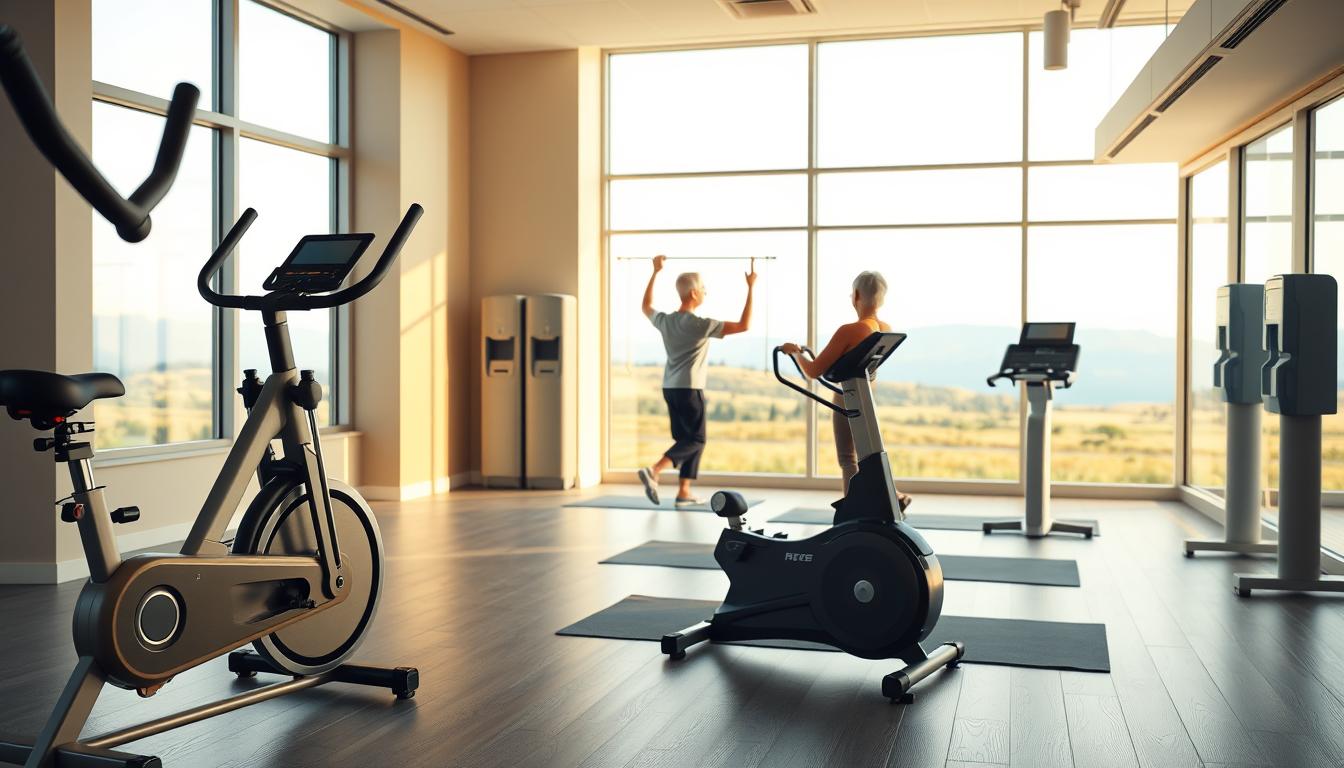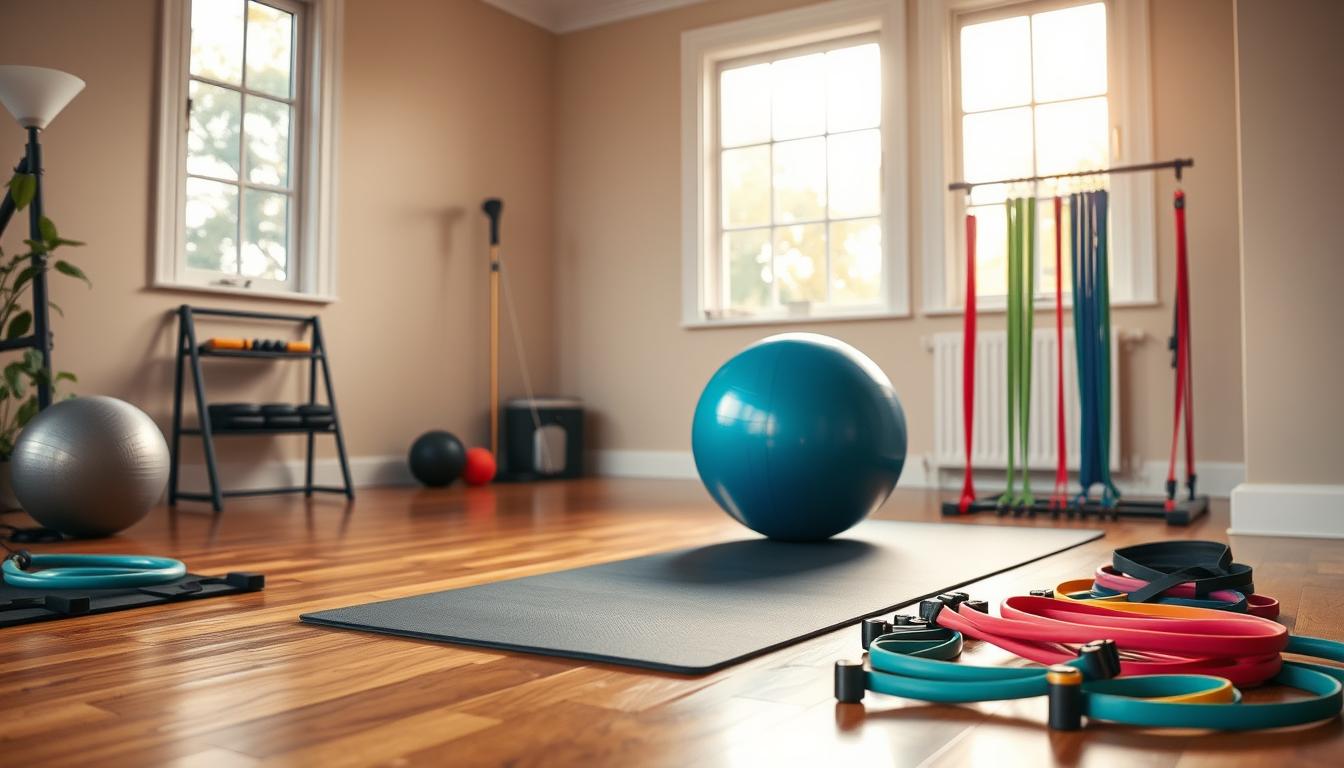Want to keep your mind as nimble as a squirrel on espresso? Turns out, a daily dose of playful challenges—like Sudoku or digital trivia—can sharpen your thinking skills and slow cognitive decline. I’ve seen 70-year-olds outpace millennials in memory apps, and trust me, it’s equal parts inspiring and hilarious.
Here’s the kicker: your brain thrives on novelty. Rotating between crossword puzzles, strategy-based card games, and even techy apps forces it to adapt. Think of it like swapping your morning coffee for green tea—same energy boost, fresh flavor. Studies show this variety strengthens neural pathways, which might explain why my aunt swears her weekly Mahjong group “keeps her from turning into a goldfish.”
Best part? You don’t need a PhD to benefit. Even 15 minutes daily with a jigsaw puzzle or word scramble counts. One retired teacher I know combines her love of gardening with memory games by labeling plants in Latin. “Keeps the weeds and forgetfulness at bay,” she jokes.
So whether you’re shuffling virtual cards or tackling tactile riddles, mixing activities is key. It’s not about becoming a memory champion—it’s about laughing your way to a sharper, more resilient mind. And honestly, who doesn’t want that?
Understanding How Brain Games Enhance Cognitive Function
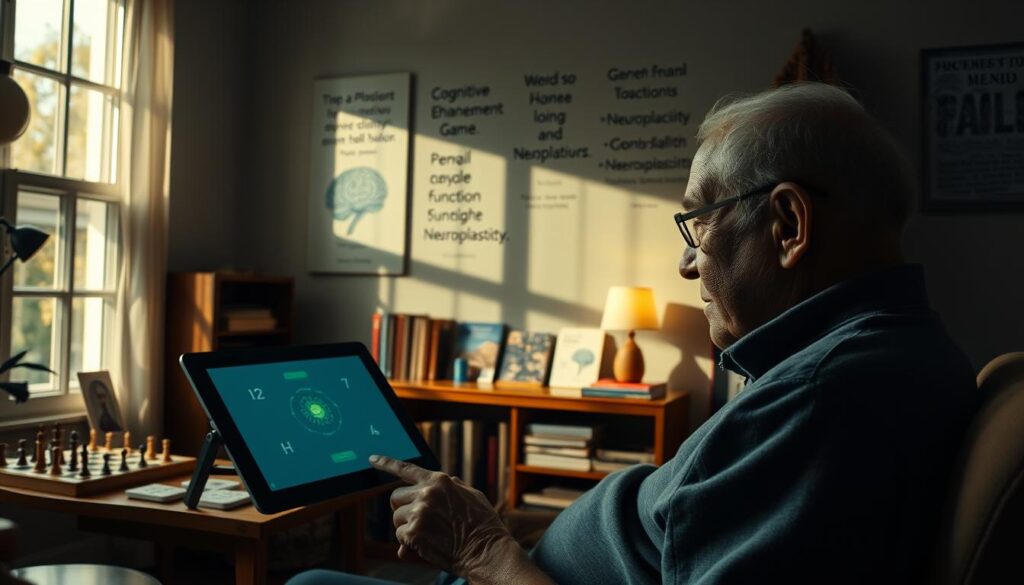
Think your brain’s too old for new tricks? Science begs to differ. Let’s cut through the noise: structured mental workouts—when done right—can rewire neural pathways like a GPS recalculating routes. I’ve watched 68-year-olds crush digital memory challenges faster than my niece swipes TikTok.
Proof in the Pudding (and Peer-Reviewed Journals)
A 2022 UCLA study found adults over 60 who mixed digital puzzles with classic crosswords improved processing speed by 27% in 8 weeks. That’s like upgrading from dial-up to fiber-optic thinking. Neuropsychologist Dr. Lena Torres confirms: “Dual-approach training forces the mind to juggle information—exactly what prevents cognitive rust.”
| Game Type | Cognitive Boost | Frequency |
|---|---|---|
| Digital Puzzles | Executive Function | 3x/week |
| Card Games | Working Memory | Daily |
| Crosswords | Verbal Recall | 4x/week |
Grandma’s Got Game (Literally)
Meet Martha, 72—she streams chess tutorials and schools teenagers online. “It’s not about winning,” she laughs. “It’s about proving my neurons still throw punches.” Her weekly routine? Morning sudoku, afternoon trivia apps, evening bridge club. MRI scans show her hippocampus—the memory HQ—looks a decade younger.
Key takeaway: Consistency trumps complexity. Whether you’re matching tiles on a screen or shuffling physical cards, that daily mental flex builds what researchers call “cognitive reserve”—your brain’s emergency fund against aging.
Brain Games for Seniors: Strategies That Challenge Your Mind

Who says mental workouts can’t feel like playing arcade games? Modern tech offers surprising ways to flex those thinking muscles. Take it from Harold, 74, who spends Tuesday afternoons rescuing princesses in Super Mario 3D. “It’s not just fun,” he grins. “Navigating those platforms keeps my reflexes quicker than my grandkids’.”
When Screens Become Brain Gyms
Digital puzzles do more than entertain—they create neural fireworks. Angry Birds isn’t just about flinging birds; it’s about strategizing angles under pressure. A 2023 Stanford study found adults over 65 using puzzle apps improved spatial reasoning by 34% in six weeks. That’s like giving your mind a GPS upgrade.
| Digital Tool | Mental Boost | Time Commitment |
|---|---|---|
| Memory Match Apps | Pattern Recognition | 10 mins/day |
| 3D Platform Games | Spatial Awareness | 15 mins 3x/week |
| Word Scramble Apps | Verbal Fluency | Daily 5-min sessions |
Local librarian Edith, 68, swears by her morning routine: coffee with a side of Lumosity puzzles. “It’s like brushing teeth for my gray matter,” she says. The secret sauce? Immediate feedback. Apps show progress in real time—watching those scores climb feels like unlocking achievement badges for your cognition.
Pro tip: Pair digital challenges with tactile ones. Alternate between tablet puzzles and physical jigsaw pieces. This combo keeps multiple brain regions engaged, like cross-training for your neurons. Just ask Harold—he’s now teaching his bridge club how to beat Bowser and boost working memory simultaneously.
Exploring Puzzle Games and Interactive Challenges
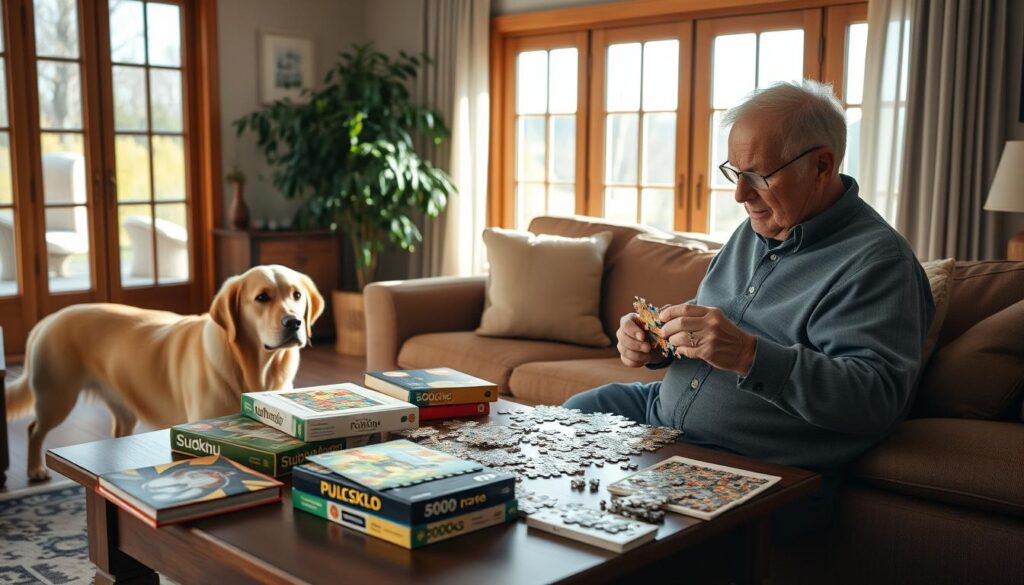
Ever tried teaching a goldfish chess? That’s what crossword puzzles feel like when you’re rusty. Paper grids and digital versions available online offer more than nostalgia—they’re mental marathons disguised as casual fun. A 2021 University of Exeter study found crossword enthusiasts scored 15% higher on verbal recall tests than non-puzzlers. Translation: Your vocabulary could outshine a thesaurus.
Crosswords vs. Sudoku: The Cognitive Smackdown
Crosswords are like that chatty friend who remembers every birthday—great for language skills. Sudoku? It’s the silent mathlete in the corner, flexing logic muscles. Research shows number puzzles boost problem-solving speed by 22% in adults over 65. Pro tip: Rotate both to avoid mental ruts. One retired engineer I know does crosswords with his coffee and Sudoku during commercials—calls it “cross-training for my cranium.”
| Puzzle Type | Skill Boost | Ideal Frequency |
|---|---|---|
| Crosswords | Verbal Fluency | 4x/week |
| Sudoku | Logical Reasoning | Daily 10-min sessions |
Why Mario Beats Bingo Night
3D video games aren’t just for teens. Navigating Super Mario’s mushroom kingdom requires spatial awareness sharper than a GPS. UC Irvine researchers found seniors playing 3D games improved recognition memory by 30% in two weeks—better than traditional brain training apps. Harold (yes, the Mario maestro from Section 3) now spots misplaced keys faster than his grandkids. “It’s like my eyes got glasses,” he jokes.
Mix digital and tactile challenges for maximum impact. Try VR gardening apps that test memory and coordination—it’s like Zumba for your neurons. As one neurologist told me: “Variety isn’t just life’s spice; it’s your brain’s multivitamin.”
Merging Mental Activity with Physical and Social Engagement
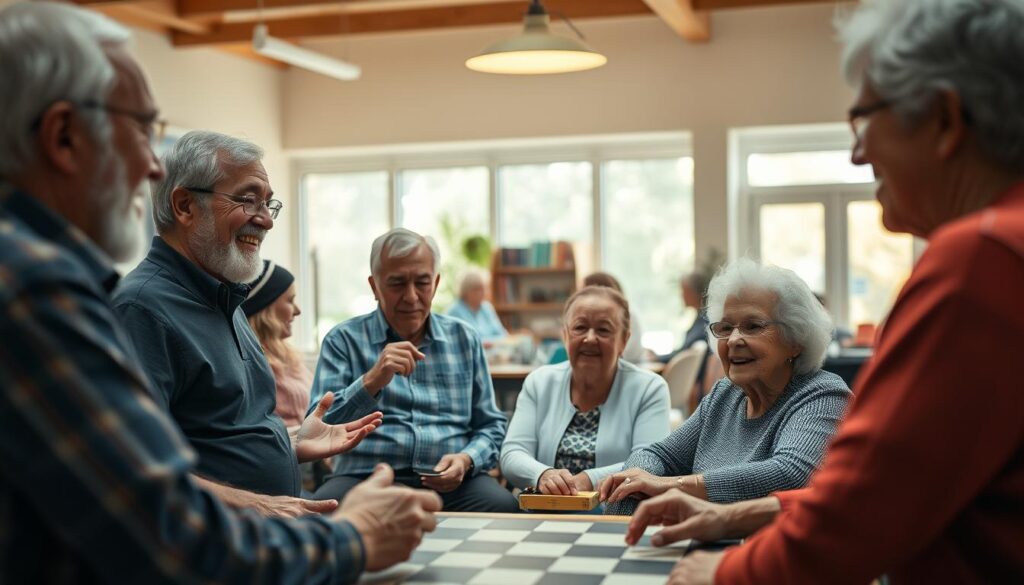
Picture this: you’re tossing virtual strikes in Wii Bowling while solving trivia questions between frames. That’s the magic of blending mental sweat with physical motion—it turns exercise into a laugh-filled brain boost. I’ve seen retirement communities where morning tai chi flows straight into afternoon Scrabble battles—that’s how you build a cognitive safety net.
Screen Smarts Meet Real-World Moves
Tech isn’t the enemy—it’s a tool. Harold (our Mario-loving friend from earlier) now hosts weekly Wii Tennis tournaments at his senior center. “We’re not just swinging remotes,” he explains. “We’re strategizing serves and dodging virtual line judges.” Studies show this combo improves reaction times 40% faster than solo screen time.
| Activity Type | Cognitive Benefit | Social/Physical Perk |
|---|---|---|
| Wii Bowling + Trivia | Multitasking Skills | Group Laughter |
| Bingo Club Walks | Auditory Processing | Mild Cardio |
| Chess Meetups | Strategic Thinking | Face-to-Face Bonding |
Local YMCAs are catching on. Many now offer “Brain & Body Hours” where puzzles pair with light resistance training. One 69-year-old regular told me: “I do crossword clues between arm curls. My biceps and vocabulary are winning.”
Golden rule: For every 30 minutes of screen puzzles, add 10 minutes of social interaction. Join a gardening club that uses plant ID apps, or try mall-walking groups that play “I Spy” with storefronts. Your neurons crave this mix like morning coffee craves a biscotti.
Wrapping Up Brain Boosting Tips for a Sharper Mind
Who knew mental fitness could taste like morning coffee with a crossword chaser? The real magic happens when you mix tactile puzzles with digital challenges—like pairing sudoku with app-based memory matches. Variety isn’t just fun; it’s your neural network’s favorite playlist.
Even five-minute word scrambles between chores count. My neighbor combines her daily walk with “alphabet spotting”—naming objects from A to Z. “It turns sidewalks into brain trails,” she says. Studies back this up: quick sessions strengthen focus better than marathon thinking marathons.
Don’t underestimate the power of company. Join a chess club that laughs over blunders, or host a monthly trivia night. Shared wins—like finally beating that tricky crossword clue—forge connections and cognitive armor. Research shows socially active older adults cut dementia risk by 40% compared to solo players.
This isn’t about avoiding decline. It’s about discovering that “aha!” moments feel juicier at 70 than they did at 17. So grab that deck of cards, fire up a puzzle app, and remember: every playful challenge is a high-five to your future self.

